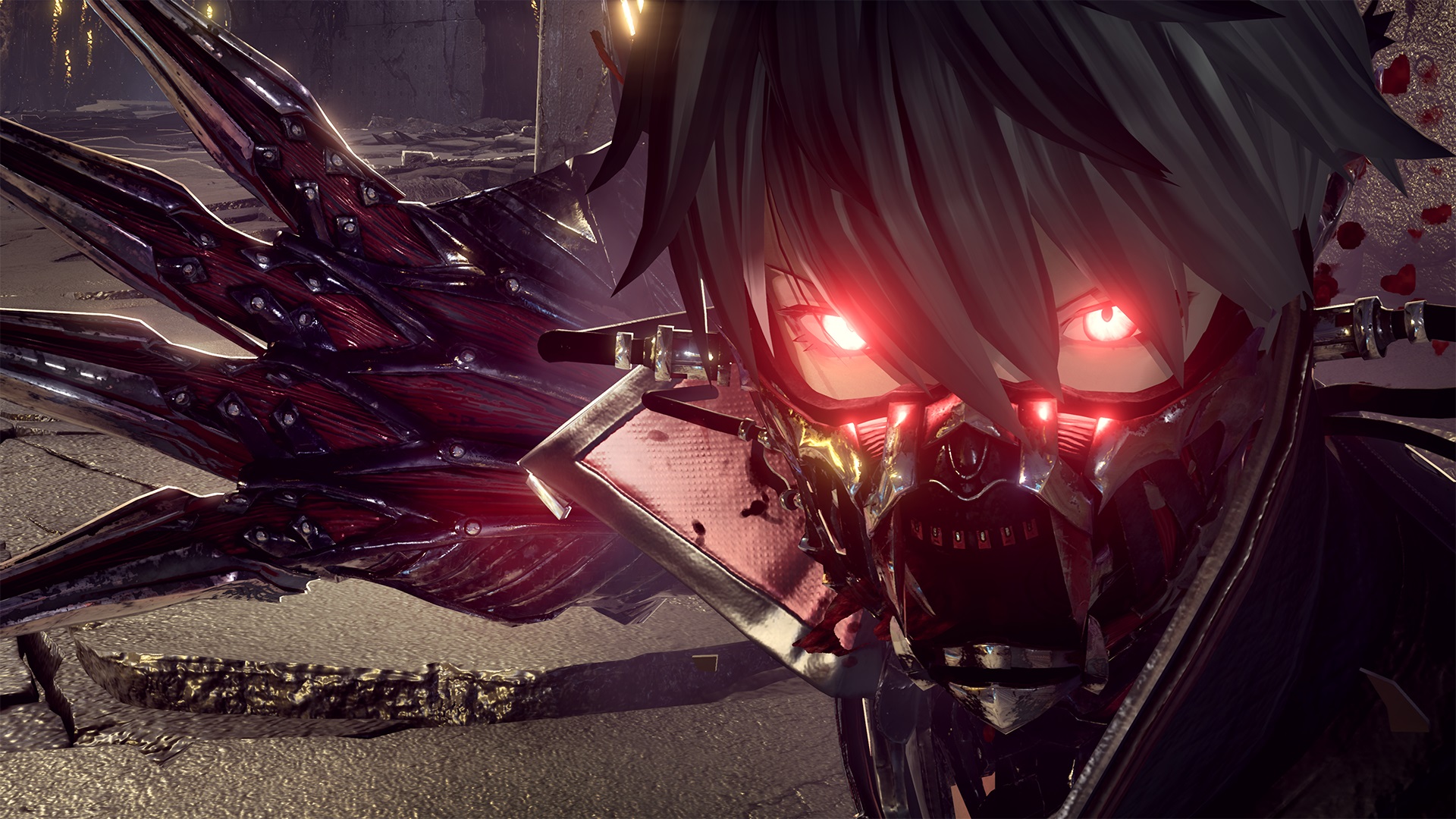GamesRadar+ Verdict
Code Vein's lackluster combat is held up by great character customization, and its boring world is driven by a memorable story. It's clunky and uneven, but fun.
Pros
- +
Gorgeous anime art
- +
In-depth character customization
- +
Memorable story
Cons
- -
Too easy
- -
Recycled enemies
- -
Clunky combat
Why you can trust GamesRadar+
Code Vein is loaded with beautifully animated, fully voiced cutscenes, some of which I found surprisingly affecting, but the most important line in the entire game is this: "does not open from this side". Because while Code Vein is a third-person action-RPG unabashedly styled after Dark Souls, more than anything, it's a dungeon-crawler. It's a game about collecting keys, scouring maps, fighting bosses and, most importantly, opening doors. If you go into it expecting Dark Souls, you'll be disappointed. That said, I had a lot more fun with Code Vein than I expected, and despite all its faults, I kind of want to play through it again.
Sucked in
Code Vein was made by the God Eater team, and this is especially obvious in its irresponsibly detailed character creator. I would review this thing separately if I could. It has more color gradients than quartz in sunlight. It has more options for eyebrows than most games have for your whole character. There are hundreds of choices, all with their own advanced sliders and settings. You can change the highlights on your freaking eyes. You can add extra hair. You can manifest your wildest anime OC or accurately recreate any character you can think of. It's wild, ya'll.
No matter what you look like, you'll play as an amnesiac Revenant trying to make ends meet in a ruined world crawling with the Lost. Revenants are humans who've been infected with parasites which grant superhuman abilities, and Lost are just Revenants who've lost their humanity. Revenants are similar to vampires in that they require human blood to survive; without it, they turn feral and become Lost. The power Revenants wield also has another, steeper price: much or all of their memories as a human.
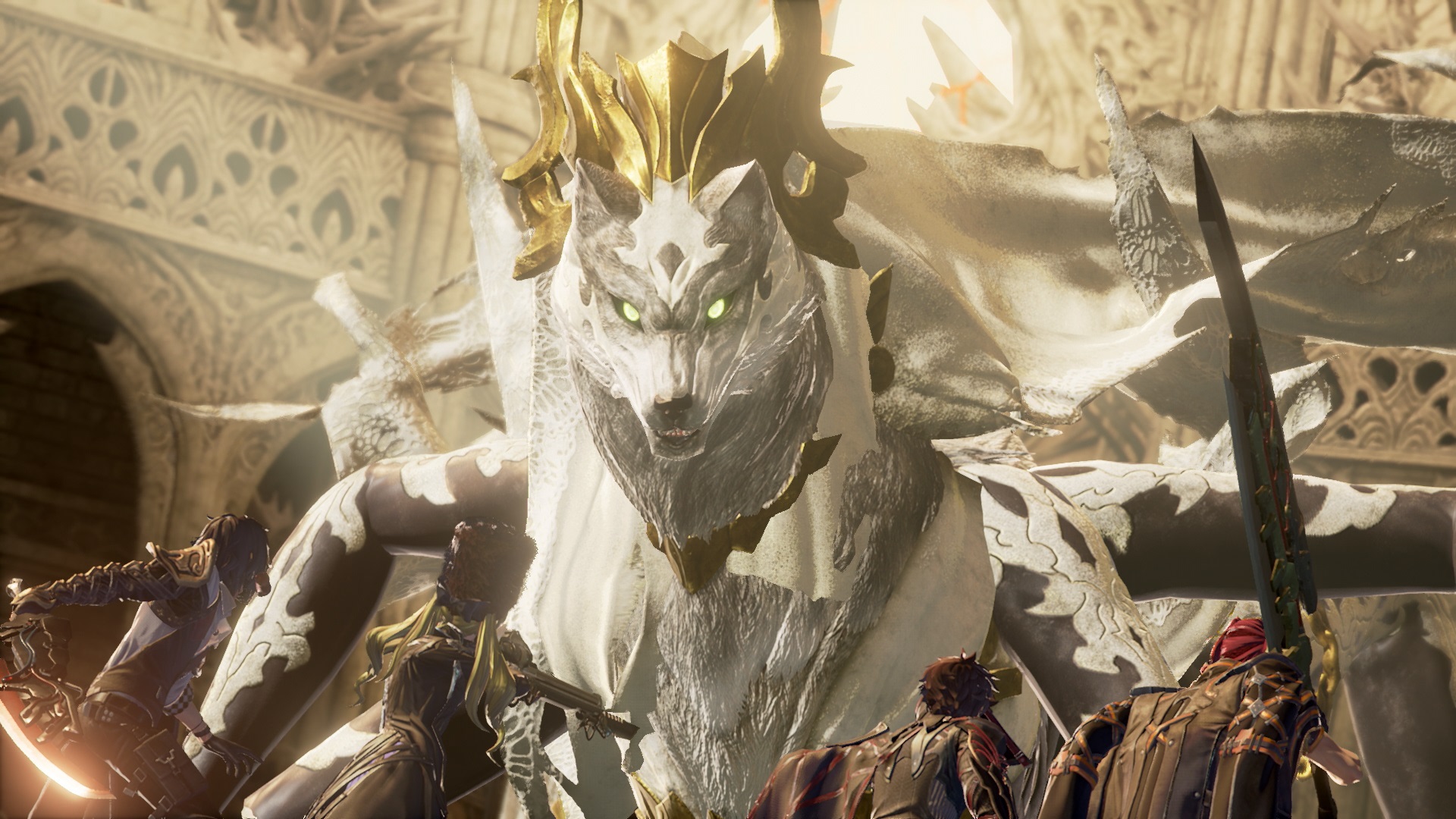
Release date: September 27, 2019
Platform(s): PS4, Xbox One, PC
Developer: Bandai Namco
Publisher: Bandai Namco
Revenants were created as a means to fight the Lost Queen who attacked humanity, but now that the Queen is dead and gone, the surviving Revenants are purposeless and struggling. After the war ended, they were all corralled in a fractured city by a cage of lethal red mist, and now that the Bloodsprings that sustained them are drying up, more and more are turning into Lost. It's a bleak and intriguing setup, and Code Vein uses it to craft an ever-escalating plot which kept me guessing, even if it is a bit circuitous. I dig the underlying themes – immortality as a curse, the aftermath of war, the consequences of a power nobody asked for, and conflict driven by scarcity, to name a few – and there's also the phantom pain of not knowing your past, which is something all Revenants grapple with.
Build-a-vampire
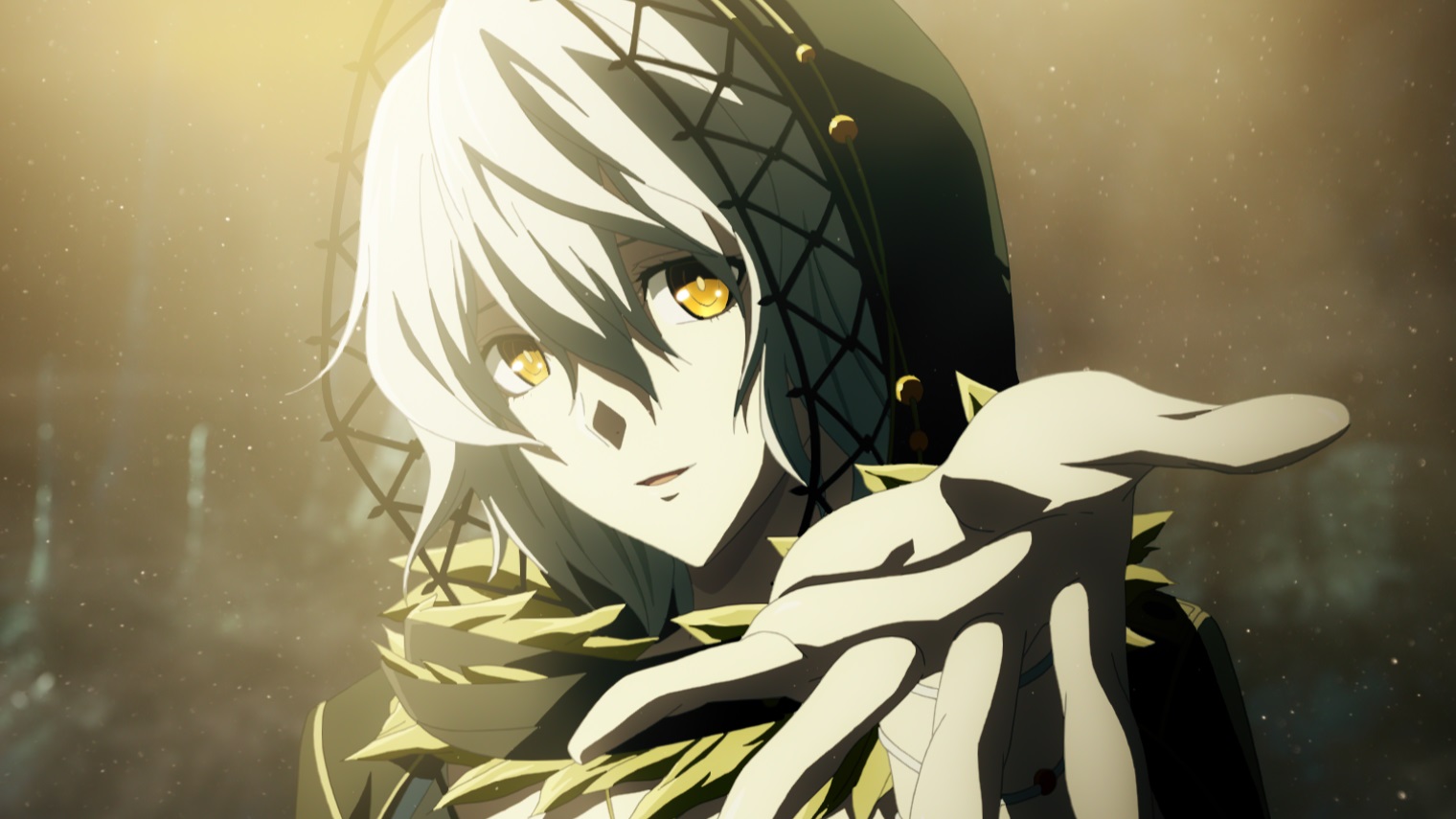
I figured Code Vein's story would just be anime vampire nonsense, and it kind of is, but I enjoyed it because it's told through endearing characters whose individual stories are directly shaped by your actions. You have the unique ability to not only restart Bloodsprings with your blood, but also to rekindle lost memories using Vestiges, blood crystals scattered throughout the world. Each Vestige teaches you more about the character it belongs to, whether it's one of your allies back at base or some unfortunate Revenant that history forgot. The presentation is kind of cumbersome – basically, you walk slowly through ethereal reenactments of past events – but there are some genuine gut-punch moments in the short stories contained in Vestiges. One or two of them even made me well up a bit, but I am a sucker for sibling sob stories.
Backstories aside, Vestiges also tie into the best part of Code Vein: character customization. I'm not talking about eyebrows and extra hair – though I'm still not over that – I'm talking about your abilities, or more accurately, your Gifts. You can equip eight active Gifts and four passive ones, and these determine your traits and actions in combat. Active Gifts are things like spells, buffs, and weapon arts, while passive Gifts generally increase your stats. To unlock new Gifts, you have to find new Blood Codes, which are essentially classes – stuff like Mage, Ranger, Berserker, and other, more creative variants.
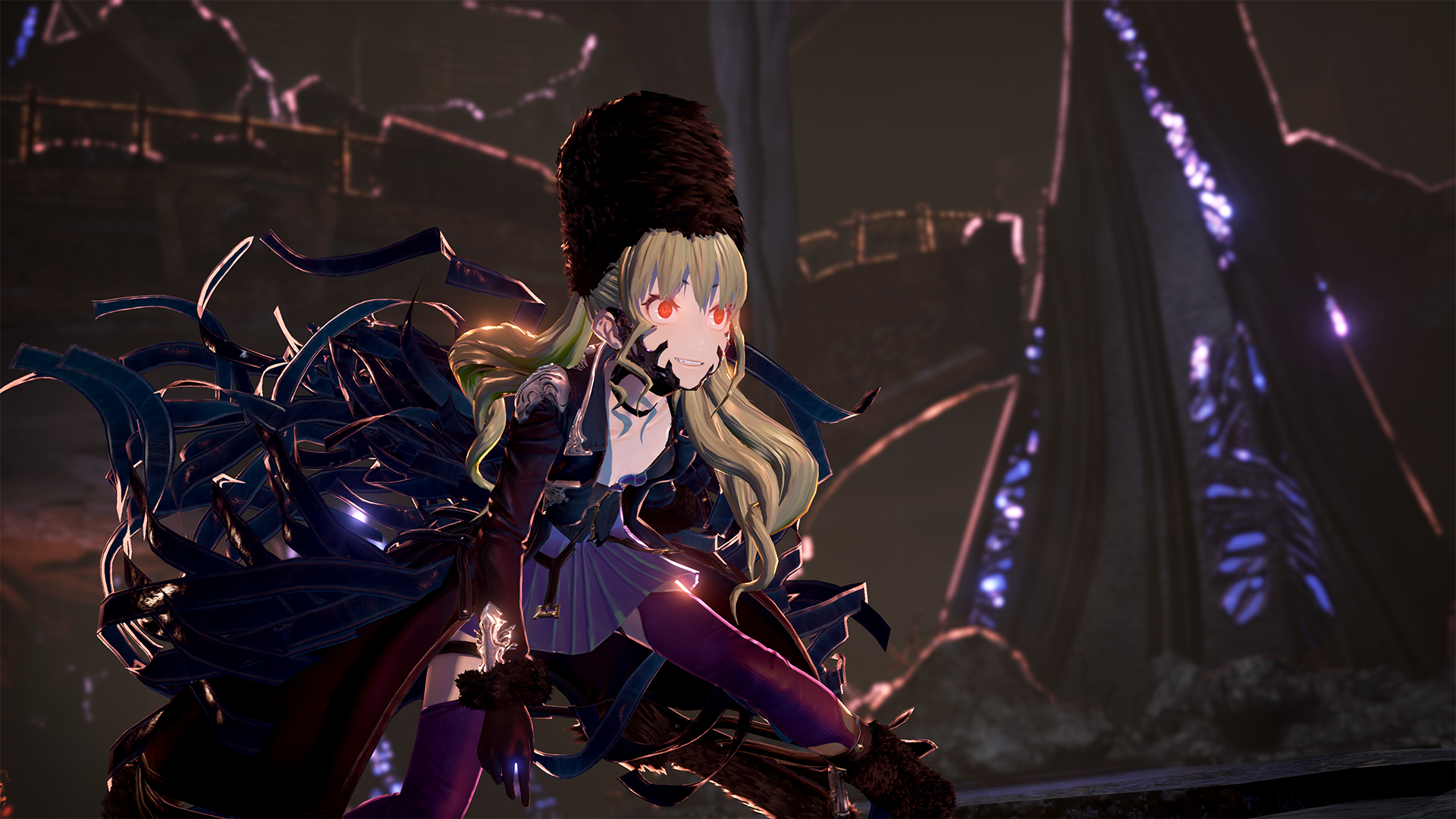
To truly master a Blood Code, you'll need to find all the Vestiges related to it, with each Vestige unlocking a new Gift or two. You're going to want those gifts, because when you level up in Code Vein, you only increase your health, stamina, and base attack values. All of your specific stats come from your Blood Code, your Gifts, and your gear – that is, your Blood Veil armor and your two weapons. The kicker is that once you learn most Gifts, you can use them no matter what Blood Code you have equipped as long as you have the requisite stats, like a B rank in Strength. This system marries the game's story, exploration, and combat beautifully, and it's the driving force of the entire game. It's a multiclassing, min-maxing fiesta which I utterly obsessed over.
Within five hours, I was using Gifts from more than six different Blood Codes. I spent the first half of the game as a Dexterity build with halberds and Willpower-based Dark Gifts, but when I unlocked a strong Strength-based Blood Code, I totally inverted my build to use greatswords and attack buffs, and that transition was quick and intuitive. I augmented my favorite Blood Veil to reduce its weight and improve my roll speed, and I used two passive Gifts to bump my stats just high enough to allow two specific spells. I barely managed to squeeze everything in, but because I'd gotten all the Vestiges up to that point, it worked out in the end, which was hugely satisfying.
There are dozens of Blood Codes and hundreds of Gifts, and the sheer number of possible combinations is intoxicating. I agonized over how to build my character and savored every decision. This also motivated me to explore dungeons more thoroughly. I wanted to find all the Vestiges to get to know my favorite characters and to unlock the best Gifts in their Blood Codes. Building your ideal Lost-killing machine feels so good. I just wish everything surrounding that process was better.
The bad kind of jank
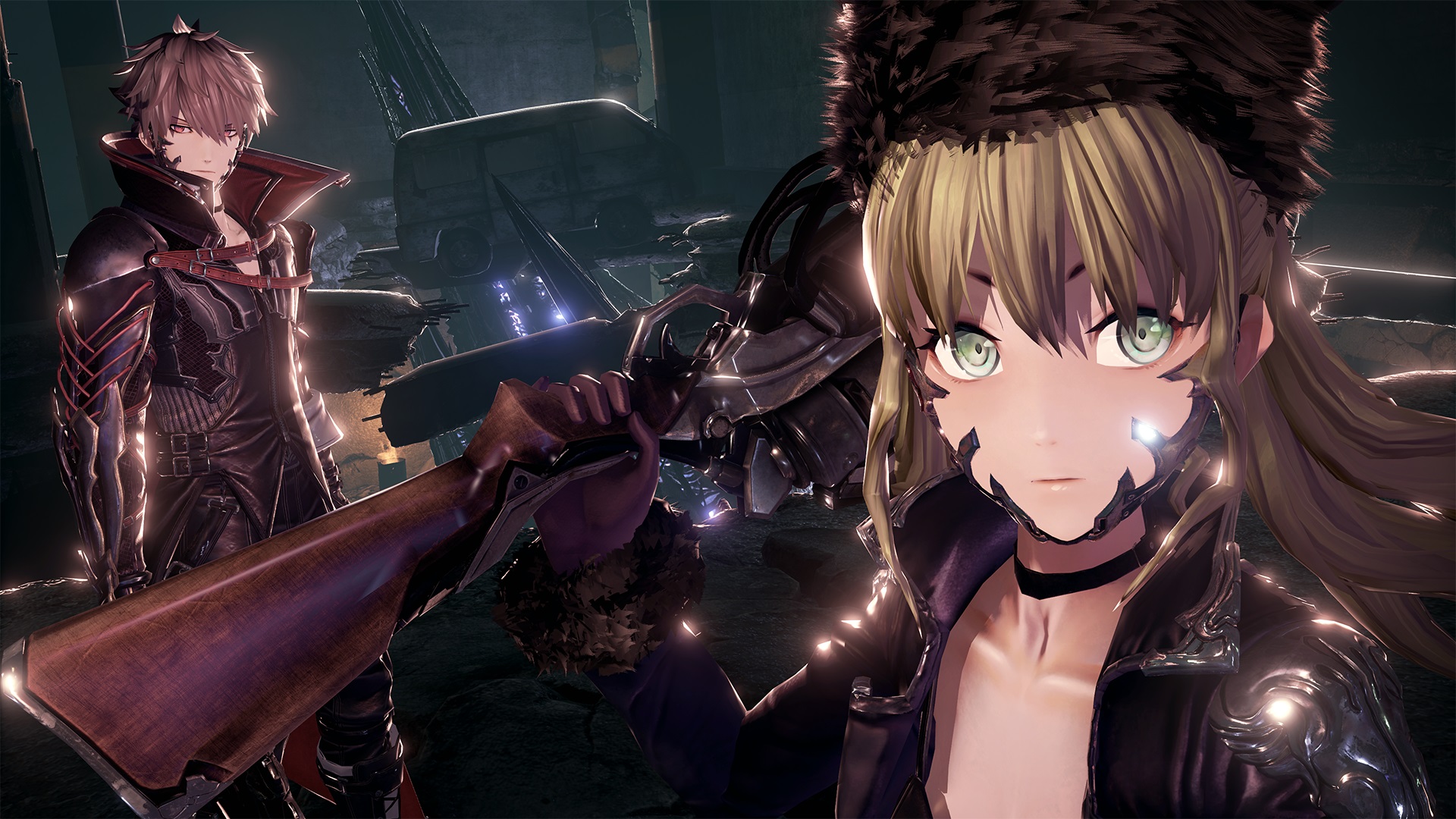
While Code Vein plays very differently from Dark Souls, parts of it are ripped straight from From Software's playbook. Your Regeneration consumable, for example, works just like an Estus Flask; it refills when you rest at Mistle checkpoints (which work just like Bonfires) and you find items to upgrade how much it heals and how many charges it has. You level up using Haze collected by killing enemies, you lose your Haze when you die, and you can reclaim it by retracing your steps. The weapon upgrade system is shot-for-shot Titanite. Code Vein even has its own version of Ornstein and Smough, not to mention an alternate-universe Anor Londo where all the flying buttresses were handled by M.C. Escher. It's blatant, but I'm not complaining. These elements worked before and they work here. It's the other stuff I dislike.
Code Vein is an action-RPG with action that just isn't that great. Combat is OK at best. Your attacks are sluggish and don't flow together at all, so fights are stilted and all-around janky. The five weapon types – sword, greatsword, halberd, hammer, and bayonet – feel indistinct, and the only weapons with movesets that have any personality are unlocked way too late in the game. The best approach with every weapon is always just mashing Square / X until the thing dies.
Blocking is so punishing that it's basically pointless, and the timing on the parry is so wonky that I never used it. Enemies are slow, blind, and stupid, and they have obvious, easily interruptable attacks. The true danger lies in the game's questionable hitboxes. I cleared Code Vein in 35 hours with 100% completion on all maps, and I bulldozed through everything after the first five hours without any grinding whatsoever.
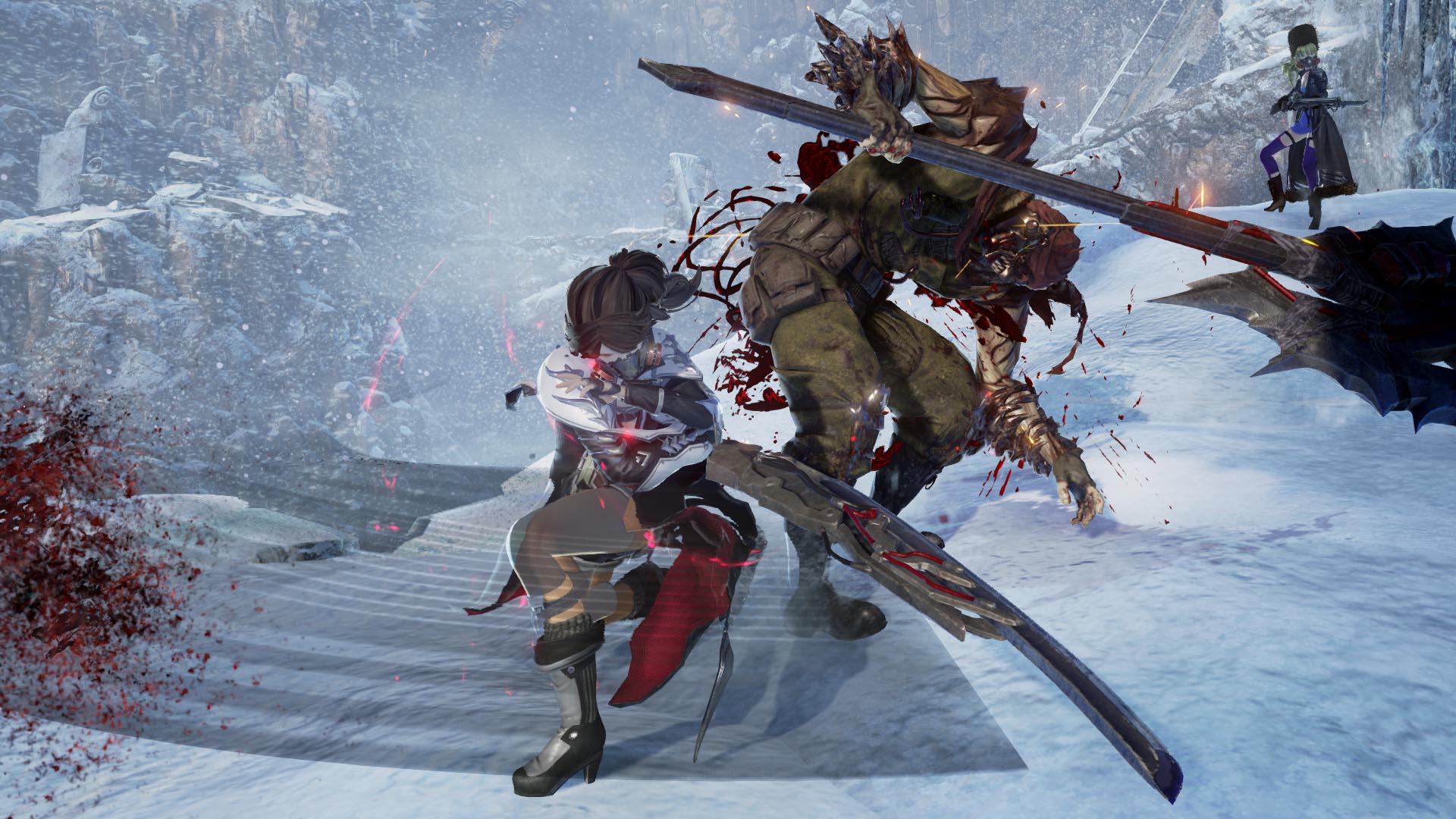
Code Vein is too easy, in large part because partners are utterly bananas. You can bring one partner with you when you go exploring, and fighting alongside them contributes to a wafer-thin friendship system, but it also further trivializes fights. I get that nobody likes escorting dumb NPCs, but I think the companions in Code Vein go too far in the opposite direction. If anything, they are escorting you. Partners will straight-up solo some bosses if you let them (I watched one do just that as an experiment). They can repeatedly revive you if you die. They will massacre normal enemies before you even get to them. They're monsters.
I realize it's kind of weird to complain about NPCs who are too competent, but Code Vein is so easy and exploitable that the last thing it needs is someone else literally doing the fighting for you. And you can invite another player to your world on top of that - I can't imagine what three Revenants would do to the game's bumbling bosses. And sure, I could choose to play the whole thing entirely solo, but if I have to avoid fundamental features and ignore cool characters to make the game more fun, something's gone wrong.
Help, I can't stop
I just spent several paragraphs ragging on Code Vein's combat, but as mediocre as it is, I find it weirdly comfy. Rather than the action itself, I enjoy watching my meticulously tuned character just go to town, you know? Combat is easy, repetitive and occasionally frustrating, but I still love watching my badass vampire chick whoop some Lost booty because every enemy I utterly destroy further validates my build choices. No, one-hitting a dude with a basic spell isn't particularly challenging, but god does it feel good knowing I can only pull that off because I stacked rare Gifts in comically broken ways.
I feel the same way about the dungeons that enemies inhabit. They aren't particularly inventive or clever, but they have enough secrets and alternate paths to hold my curiosity. It's video game-branded fun in its most basic form. Opening locked doors to create shortcuts, discovering hidden chests, stumbling into mosh pits, dropping down to secret paths – yep, that's a dungeon-crawler, all right. Dungeons are mere conveyor belts queueing up dudes for me to slaughter, and I gleefully, asbent-mindedly chew through them like so many potato chips. I could be eating something better, but the chips are right in front of me, and I cannot resist.
And to be clear, it's not all bad. The samey weapons come to life once you unlock a few weapon arts you can use to create and punctuate combos, and combining flashy spells and buffs is fun in a profoundly anime way. I will also never get tired of the Drain execution attacks. They deliver the exact vampire flair I was hoping for. The Ichor (mana) system is great too. Active Gifts cost Ichor and you restore your stock by landing basic attacks and drain attacks, so you're rewarded for playing aggressively and you're encouraged to use a variety of moves.
But, sadly, we still haven't gotten to the worst part: the enemies in Code Vein are irredeemably repetitive. I speak no hyperbole when I say you fight the exact same enemies for the entire game. One or two new ones show up in some dungeons, sure, but the baseline Bad Guy never changes. Half the enemies in the first level also appear in the final level, and again, they aren't particularly interesting or challenging. Basic enemies are aggressively recycled, and even bosses are reused, which is a bummer since some of the bosses are super cool. I wanted to see more unique designs. The dingy environments also blur together to form a forgettable smear of gussied-up hallways. I hope you like dank caves and concrete rubble, because you're about to see a lot of both.
Code Vein is anime power fantasy junk food, but it's elevated by superb character customization and a memorable story. While that's kind of my jam, I recognize that that won't be the case for everyone. It's a worse action game than Dark Souls, and it's one of the weaker dungeon-crawlers I've played. It's an OK game that will strongly appeal to a certain type of person. That person is me, but it might not be you.
Reviewed on PC.

Austin has been a game journalist for 12 years, having freelanced for the likes of PC Gamer, Eurogamer, IGN, Sports Illustrated, and more while finishing his journalism degree. He's been with GamesRadar+ since 2019. They've yet to realize his position is a cover for his career-spanning Destiny column, and he's kept the ruse going with a lot of news and the occasional feature, all while playing as many roguelikes as possible.
